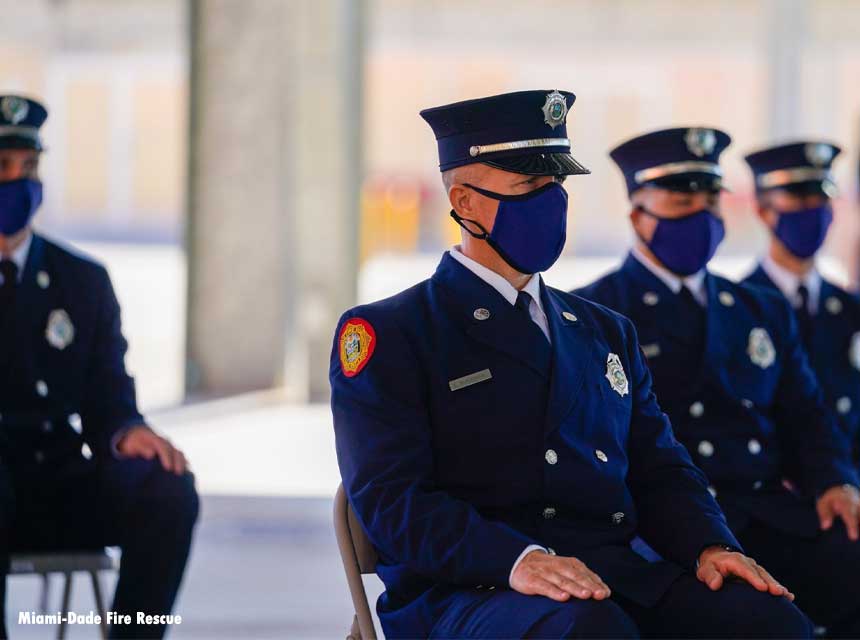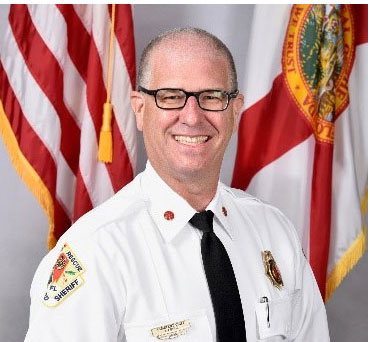
By Todd LeDuc
As we wind down the final weeks of the year, the fire service has a chance to reflect on the many challenges of 2020, with a once-in-a-century global pandemic the likes of which have not been seen since 1918 with the Spanish flu. With COVID-19 vaccines on the verge of receiving Federal Drug Administration (FDA) emergency use authorization (EAU), mass vaccinations will be underway soon and into 2021, hopefully taming the raging pandemic’s effects. First responders have had to confront not only the effects of the pandemic but also civil unrest within the country and effects of the fiscal downturn on local government budgets. As this is being written, national fire service organizations in unison have implored for the prioritization of first responders for vaccine access. At the same time, one recent survey from FDNY personnel indicated that more than half said they would not get vaccinated. This points to the need for awareness and educational resources being needed as well as monitoring the short- and longer-term effects of vaccination.
Personal protective equipment and testing became paramount to first responders and agencies in 2020 and these will no doubt continue to have great importance into the new year. We have also seen that this virus affects certain populations with comorbid conditions in a more severe manner, such as those with obesity/excess weight, poorly controlled blood pressure, and sugar levels. This harsh reality underscores the need for employers to provide for robust health and wellness resources focusing on physical and behavioral wellness. The rigors of being a first responder during a turbulent 2020 also reminds us of the importance of behavioral wellness support within our departments.
Fire service members also faced an unmatched 12 named storms, and a record-tying six hurricanes made landfall in the United States during 2020. Parts of the Gulf Coast have been hit repeatedly; the state of Louisiana saw a record five storms make landfall during 2020. These added another layer of community protection and response to natural disaster in the midst of the global pandemic.
Departments have also been impacted by personnel contracting COVID-19 and others having been exposed, forcing members to quarantine and leaving a tremendous operational strain on departments. Sadly, numerous first responders have made the ultimate sacrifice and succumbed to the virus, as have hundreds of thousands of Americans. This past week, a friend and fellow IAFC Safety, Health & Survival Section board member, lost a 50-year-old lieutenant who passed after several weeks of ventilator support—a huge loss for the agency and an unimaginable one for this member’s family and loved ones. Unfortunately, this is just one of many first responders and their families that have been impacted.
RELATED
Should We Be Thinking of a Long-Term COVID-19 Medical Surveillance Program for First Responders?
The Economic Sense of Early Detection in the First Responders
Growing Concern Regarding the Need for Post-COVID First Responder Medical Surveillance
I have published previously this year about the concerns surrounding the longer-term health effects of COVID-19 exposure and the need for medical surveillance of first responders who have contracted or been exposed to this virus as we continue to learn more. While this call continues to gain momentum through national stakeholder organization and federal support, it is important that each fire department provides their firefighters with a recent, comprehensive early detection annual firefighter physical exam by a provider that specializes in first responder health. This will allow for tracking and monitoring health changes and trends over time. Unfortunately , a 2016 survey done by the IAFC demonstrated we still have much work to do in the American fire service to ensure that every department offers its firefighters comprehensive early detection annual medical physicals. The consequences of this pandemic should remind us all of the importance of making this a top organizational and national priority.
Looking ahead, 2021 will no doubt continue to present challenges to health and wellness as we continue to gain control of the virus. Additionally, economic challenges to department budgets will continue to challenge deployment and operations.

Todd J. LeDuc, MS, CFO, FIFirE, retired after nearly 30 years as assistant fire chief of Broward County, Florida, an internationally accredited career metro department. He served as chief strategy officer for Life Scan Wellness Centers, a national provider of comprehensive physicals and early detection exams. He has served as a member of the International Association of Fire Chief’s Safety, Health & Survival Section for over a decade and is currently secretary of the section. He is a peer reviewer for both professional credentialing and agency accreditation. He is editor of Surviving the Fire Service (Fire Engineering Books) and serves on numerous advisory boards and publications. He can be contacted at Todd. LeDuc@lifescanwellness.com

